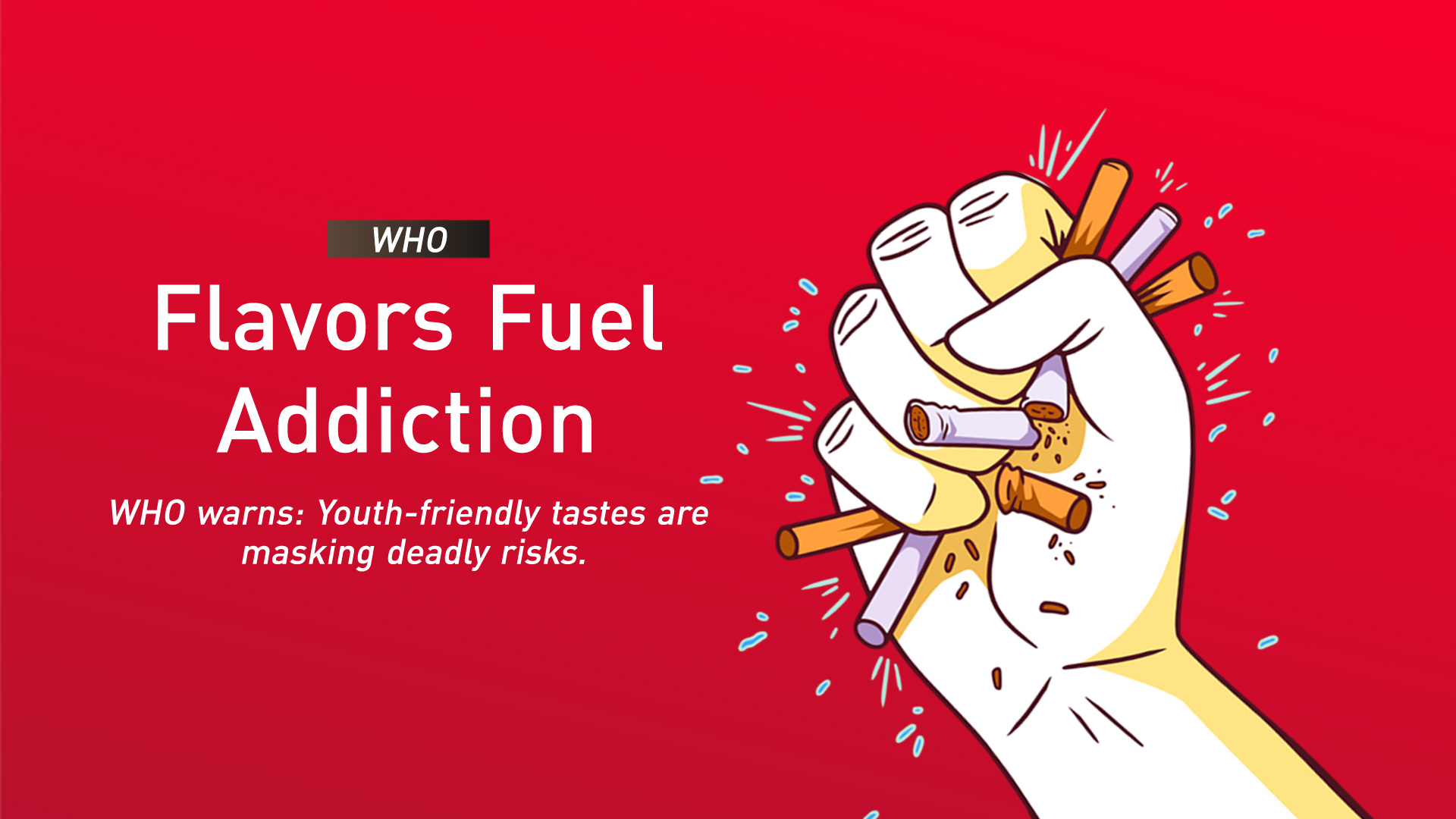New WHO Report: Flavored Tobacco Products Endanger Youth Health
On World No Tobacco Day, WHO urged a global ban on flavored tobacco and nicotine products, warning they target youth and fuel addiction. Highlighting tactics like flavor accessories and deceptive marketing, WHO called such products manipulative, dangerous, and incompatible with public health.

By Kamaran Aziz
ERBIL (Kurdistan24) – In a forceful call to action issued on the occasion of World No Tobacco Day, celebrated on May 31 of each year, the World Health Organization (WHO) urged all governments to impose immediate bans on flavored tobacco and nicotine products, warning that these attract and addict youth while undermining decades of progress in global tobacco control.
The Geneva-based health organization released multiple evidence-based reports on Friday, laying out the far-reaching dangers posed by flavored products such as cigarettes, e-cigarettes, nicotine pouches, and hookahs.
These products, marketed in flavors such as menthol, bubble gum, and cotton candy, are often disguised as harmless, youth-friendly items. However, as emphasized by WHO Director-General Dr. Tedros Adhanom Ghebreyesus, these instruments of addiction should be outlawed.
“Flavors are fueling a new wave of addiction, and should be banned,” Dr. Tedros declared. “They undermine decades of progress in tobacco control. Without bold action, the global tobacco epidemic, already killing around 8 million people each year, will continue to be driven by addiction dressed up with appealing flavors.”
The WHO’s new publication, titled Flavour Accessories in Tobacco Products Enhance Attractiveness and Appeal, documents how the tobacco industry has introduced “flavor accessories” – capsules, sprays, cards, and drops – that allow users to flavor even regulation-compliant and unflavored products.
These innovations, the WHO warns, deliberately circumvent flavor bans and further facilitate youth initiation.
According to WHO data, over 50 countries have already banned flavored tobacco, and more than 40 prohibit the sale of e-cigarettes, with a handful targeting disposables and flavored variants specifically.
Countries such as Belgium, Denmark, and Lithuania are taking the lead, implementing strict flavor accessory regulations. Yet, the report shows accessories often fall outside the scope of current legislation, creating serious gaps in enforcement.
Dr. Rüdiger Krech, WHO Director of Health Promotion, denounced these marketing tactics and stated, “We are watching a generation get hooked on nicotine through gummy bear-flavoured pouches and rainbow-coloured vapes. This isn’t innovation, it’s manipulation. And we must stop it.”
WHO experts emphasize that flavors are not harmless chemicals. Many are unsafe for inhalation and have been associated with direct toxic effects, such as respiratory complications and allergic reactions, and indirect effects through increased product usage.
Sweet and menthol flavors reduce irritation and enhance nicotine delivery, increasing the risk of long-term addiction, the report suggests.
The WHO also released detailed technical sheets, including Understanding the Design Features of Tobacco, Nicotine and Related Products and Manipulation and Marketing Strategies Used by Tobacco and Nicotine Industries, which demonstrate how deceptive packaging, influencer marketing, and tech-integrated devices (such as vapes shaped like USBs or cosmetics) target youth by downplaying health risks.
The health body reiterated the legal and moral obligations of countries under the WHO Framework Convention on Tobacco Control to regulate ingredients and product features that enhance palatability. It called for strong policy actions, including banning filters, mandating plain packaging, banning deceptive marketing language (e.g., “clean”, “organic”), and prohibiting all forms of digital advertising targeting young people.
The 2025 campaign also recognized the efforts of governments, youth activists, and civil society leaders who have resisted industry interference. “Your actions are changing policy and saving lives,” said Dr. Krech.
With the global death toll from tobacco use nearing 8 million annually, WHO concludes that flavors, and by extension the industries that deploy them, have no place in a healthy future.